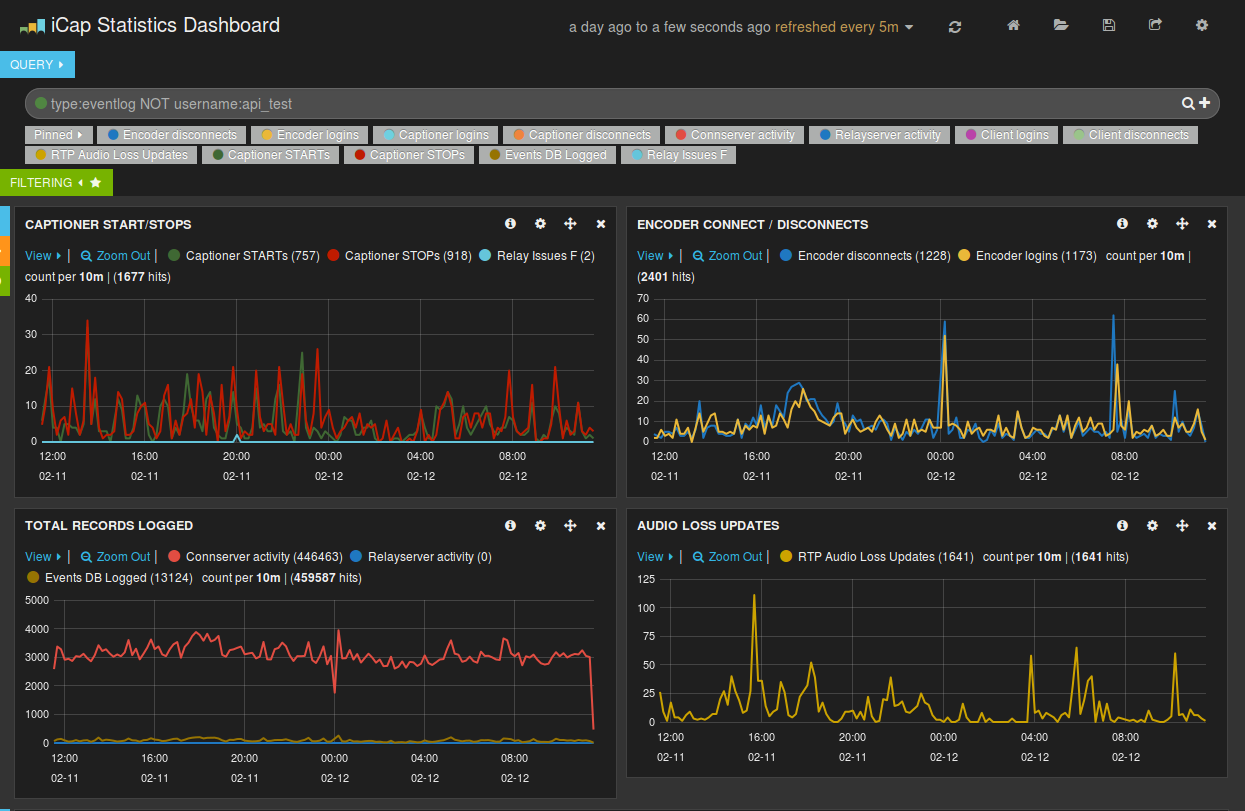Most companies providing live closed captioning services have one or more key enterprise applications that are providing scheduling, monitoring, logging, and discrepancy reporting. Realtime service providers need to manage staff assignments, be alerted immediately to technical difficulties or schedule changes, and to provide customers with thorough reporting of any type of discrepancy. These are not only basic business necessities, but are in many cases mandated by FCC Best Practices.
A good monitoring system will provide a live dashboard giving management and coordinators a quick way to see status from across all live operations, and to rapidly identify any trouble spots. After-the-fact access to logging about any reported discrepancies is also key, as this can help inform future policies while providing accurate information to customers and saving valuable technical support time.
Broadcasters and other live media providers have similar needs too when it comes to reporting for live captioning events, and rapid alarming of any type of trouble conditions. iCap is here to help.
The realtime captioning industry has seen iCap become a broad standard for IP delivery of captions over the past five years. One benefit of the growing dominance of iCap is the detailed reporting available over several interfaces, making it easy to incorporate very detailed information about connection schedules and progress into reporting tools.
Several quality standalone reporting tools are built into iCap, such as the iCap Admin web system (https://www.eegicap.com), or the iCap Broadcast Monitor tool which supplies caption and audio "drop-in" ability to all of an account's access codes simultaneously. But what happens when your company wants to see this information displayed natively in your own dashboard software of choice?
This is the purpose of the iCap Admin HTTP API, a powerful tool which was originally launched to the public in 2013 but has grown considering over this time. The iCap Admin HTTP API uses a "REST" software model to provide detailed logging information in an easy-to-parse JSON format that any software developer can incorporate into custom monitoring applications. The API provides authenticated users with answers to questions like:
- Which users in our company account are currently active on iCap? Which access codes are they connected to?
- Which iCap access codes have seen activity today, and what were the exact start and end times for the connections?
- Have there been any gaps in iCap connectivity during a planned session or for an encoder device that was expected online?
- What has been the "uptime" of my encoders during the past week, month, or year? If there were connectivity gaps reported, when were they and for how long?
These are already very important pieces of information for companies who supply or contract for live captioning. But what's even more powerful is when companies integrate this data with external sources of information like the planned schedule for live captioning activities, or broadcast monitoring equipment providing indications of captions gaps or other abnormalities.
Integration of these different data sources into a single dashboard or application can provide simple answers to the most urgent questions facing caption providers or their customers, such as whether a program receiving a captioning complaint can be proven to have had the captioner online at the time under investigation, or whether any technical difficulties can be seen during a past week's schedule. Between iCap's precise records of connection activity, and sources of scheduling data used for staff management, performance can be fully tracked and accountability preserved across the chain from individual operators to coordinators and management and back to the media customer.
To see full documentation of the features available in the iCap Admin HTTP API, check out https://www.eegicap.com/api/docs/.
Have a completed use case? We would love to see it! Have a question? Contact support@eegent.com and we will get back in touch as quickly as possible.

